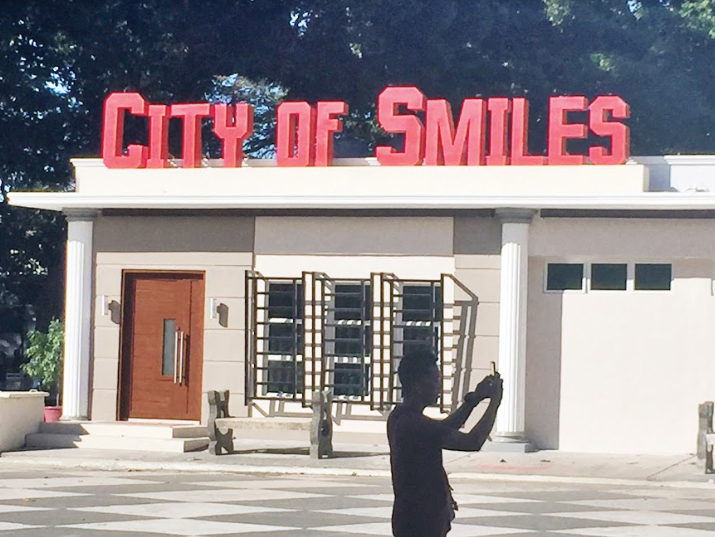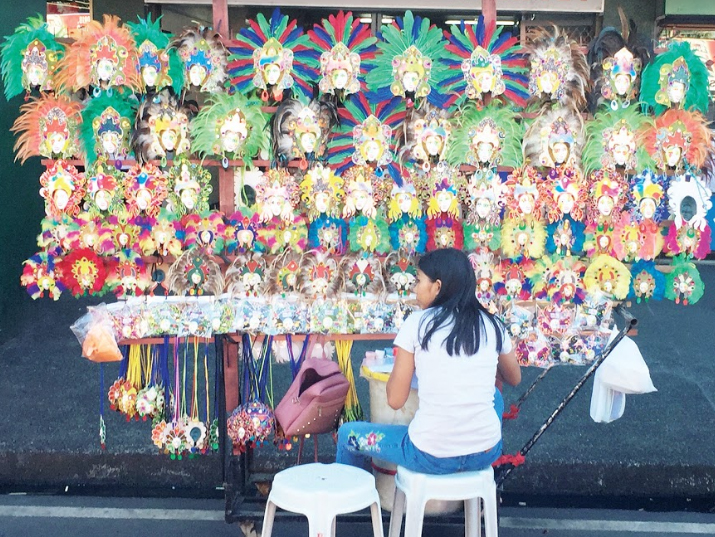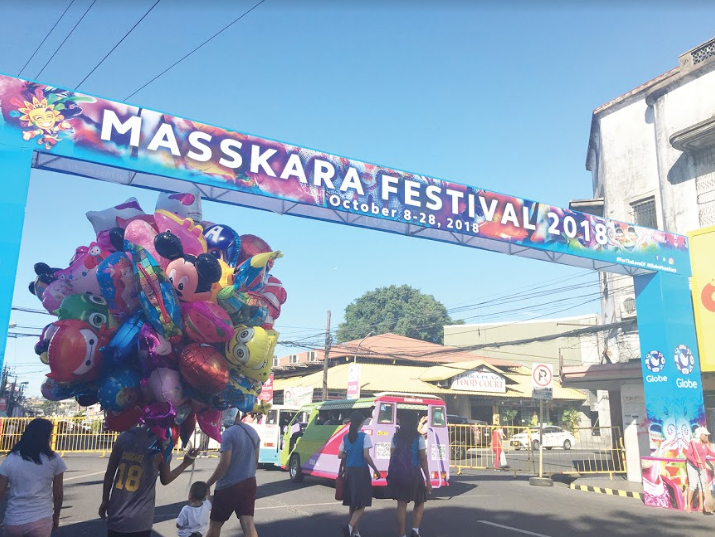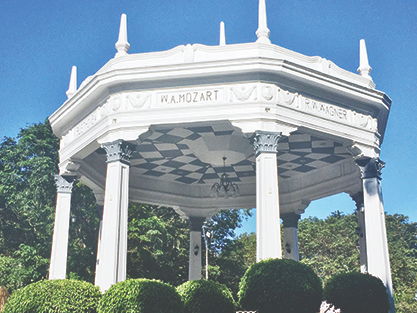BY DARYL LASAFIN and JONEL AMIO
CENTRAL to this year’s celebration of the MassKara Festival is an issue that has stirred local politics for years – the birthday of Bacolod City.
Recent developments in efforts to correct what was called an erroneous Charter Day celebration date seem to show two things: for a long time, when Bacolod was really born swirled alongside the letters of the law; and the “City of Smiles,” now 80 years old, is close to nailing a speck of its identity, all with the surrounding political tussle.

For weeks now Bacolod is celebrating the 39th MassKara Festival, which reflects the resilience of Bacolodnons through the ever-smiling maskaras that locals wear most conspicuously during the Street and Arena Dance Competition.
Every year organizers choose a theme derived from what they consider to be the most consequential event in the city. In 2017 – the year when Bacolod hosted meetings of the Association of Southeast Asian Nations (ASEAN) and when the Philippines hosted ASEAN Summits in April and November – MassKara promoted Bacolod as a “City of Southeast Asia,” inspired by the international ties the local government forged and, one way or another, turned the city into a growing business hub.
For this year the theme, “Happy Birthday, Bacolod,” is inspired by the fact that the city, created in 1938, is celebrating its 80 years of existence. But the date on when the Charter Day of Bacolod City is and should be celebrated – June 18 or Oct. 19? – is still a bone of contention and, for years until recently, stood as a huge elephant in the room.

So, when was Bacolod City born, really? We turned to documents and sought comment from a legal expert.
Republic Act 7724 declared Oct. 19 of every year as the “Bacolod City Charter Day.” October 19, 1938 was the day Alfredo Montelibano Sr. delivered his inaugural speech as the first mayor of Bacolod City – the same day the city council was inaugurated by then President Manuel Quezon – historian Modesto Sa-onoy wrote in a newspaper column.
Since RA 7724 was approved on May 19, 1994, Bacolodnons have been enjoying Oct. 19 of every year as a special nonworking holiday. This went on for years. On June 13, 2017, a bill was filed at the House of Representatives challenging this law.
House Bill 5875 aims to declare June 18 of every year as the Bacolod City Charter Day and repeal RA 7724. Rep. Greg Gasataya (Bacolod City, Lone District), author of the bill, said RA 7724 “[bears] with it the misconception that the city was created on the day of its formal inauguration and the first assembly of the city council on Oct. 19, 1938.”
The House passed HB 5875 on Feb. 14, 2018 and was forwarded to the Senate as HB 7044, which the Senate approved on Sept. 10, 2018.
Proponents of HB 7044 bank on the fact that Quezon signed and approved on June 18, 1938 the Commonwealth Act 326, or “The Charter of the City of Bacolod,” which officially turned Bacolod into a city.
When Gasataya first filed the “corrective” bill in June last year, he said he was heeding the request of Mayor Evelio Leonardia, a political ally, who said that the 1994 law “created the legally unfounded belief that the Bacolod Charter Day is on Oct. 19.”
Opposing this move, Councilor Wilson Gamboa, chairman of the Sangguniang Panlungsod committee on history, culture and the arts, said HB 7044 contradicts “traditions” embodied in celebrating the Charter Day.

Gamboa argued that Bacolod became a city when it “came into corporate existence or personality” on its formal inauguration on Oct. 19, 1938, citing a comment from the National Historical Commission of the Philippines (NHCP) chairman Dr. Rene Escalante in a letter dated Dec. 1, 2017.
In a letter dated Aug. 29, 2018, Gamboa requested Senate President Vicente Sotto III to prescribe HB 7044 as “being contrary to traditions and norms already practiced embodied [sic] in Republic Act 7724.”
Gamboa also cited several cities that celebrate their Charter Days on the day they were inaugurated instead of the day their Charters were signed and approved:
* Zamboanga City – Commonwealth Act (CA) 39, signed and approved on Oct. 12, 1936; inaugurated on Feb. 26, 1937; celebrates Charter Day every Feb. 26
* Iloilo City – CA 57, signed and approved on Oct. 20, 1936; inaugurated on Aug. 25, 1937; celebrates Charter Day every Aug. 25
* Cebu City – CA 58, signed and approved on Oct. 20, 1936; inaugurated on Feb. 24, 1937; celebrates Charter Day every Feb. 24

In justifying the push for the June 18 Charter Day celebration, the city government – through the City Legal Office – cited the case “Mejia vs. Balolong,” in which the Supreme Court “ruled that Dagupan City came into existence on June 20, 1947, the time when it was created pursuant to Section 2 of Republic Act No. 170, not on January 1, 1948 when its city government was organized according to Section 88 of the same Act.”
***
For Atty. John Paolo Villasor, dean of the University of Negros Occidental-Recoletos’ School of Law, Bacolod became a chartered city upon the signing and approval of CA 326.
“It is clear from Section 54 of CA 326 that the law creating the City of Bacolod took effect upon its approval on June 18, 1938…Thus, the Charter Day should be commemorated on June 18, 1938,” Villasor told Panay News.
Villasor added that Bacolod City “commenced its corporate existence upon the signing of CA 326,” contrary to what Gamboa has claimed.
He explained: “Corporate existence of a local government unit or a municipal corporation starts on the date when the law creating a municipal corporation was signed and approved. The National Assembly of the Philippines, which was the national legislature in 1938, created Bacolod City through an enabling law.”

According to Villasor, RA 7724 must have been amended to “properly classify” Oct. 19 as the “Bacolod City Inauguration Day.”
“The formal inauguration was set by virtue of Proclamation No. 322 signed on Sept. 23, 1938 declaring Sept. 30, 1938 as the original date for the Inauguration of Bacolod City,” he added. “However, due to inclement weather extending to almost three weeks, the Inauguration of Bacolod City was postponed on Sept. 30, and on several dates in the first two weeks of October 1938 [until it] finally took place on Oct. 19 at the Bacolod public plaza.”
Villasor believes there was “mere inadvertence or oversight” in celebrating the Charter Day of Bacolod City in the past years.
“Notwithstanding this oversight, Oct. 19, 1938 is still very much a momentous day of celebration in the history of Bacolod. Its importance cannot be gainsaid for posterity,” he stressed.
But Villasor said Bacolodnons must be able to “accurately tell the story of our city to future generations” since “it is our civic duty to place matters of public concern and interest in the proper perspective.”
“While the birthday of Bacolod as a city was on June 18, 1938 and the day when Bacolod was formally inaugurated as a chartered city with its pioneer city officials was on Oct. 19, 1938, both days are significant milestones in the history of Bacolod City,” Villasor added. “[They] should be commemorated within political and historical contexts – June 18, 1938 as the Bacolod City Charter Day and October 19, 1938 as Bacolod City Inauguration Day.”
***
This view is apparently shared by the NHCP.
The commission, which local officials have consulted on the issue, offered an elaborate explanation on why Bacolod has been celebrating its Charter Day every Oct. 19 – apparently even before RA 7724.
While June 18, 1938 is “technically the date of the cityhood of Bacolod,” the inauguration on Oct. 19 that year “formalized the creation of Bacolod City under CA 326,” the NHCP wrote Leonardia on Feb. 23, 2018.
On that day, Oct. 19, 1938, “the people of Bacolod joined the inauguration, witnessing and affirming their own cityhood,” the NHCP said. “At a time when a plebiscite is not required to ratify a law enacted by the legislature and approved by the executive, the act of joining and witnessing the inauguration constituted the popular will that transcended the enactment and approval of CA 326. This is the reason why the people of Bacolod, since then, have celebrated the 19th of October as their foundation day, rather than the date of the law’s approval (18 June).”
The NHCP added: “Be that as it may, we recognize that both dates, 18 June and 19 October, have basis in history.”
After all the exchanges over the issue, this measure has been approved by both houses of Congress and now inches closure to getting signed by President Rodrigo Duterte into law – House Bill 7044, “An Act Declaring June 18 of Every Year a Special Nonworking Holiday in the City of Bacolod, Province of Negros Occidental, to be Known as the ‘Bacolod City Charter Day,’ in Commemoration of the Day President Manuel L. Quezon Signed and Approved into Effect Commonwealth Act No. 326, Creating the City of Bacolod.”
The measure provides that “the inauguration of the City of Bacolod shall be commemorated every 19th of October” and that “the highlights of the MassKara Festival shall be held every 4th Sunday of October.”/PN





